Annette & Sebastian

El Salvador
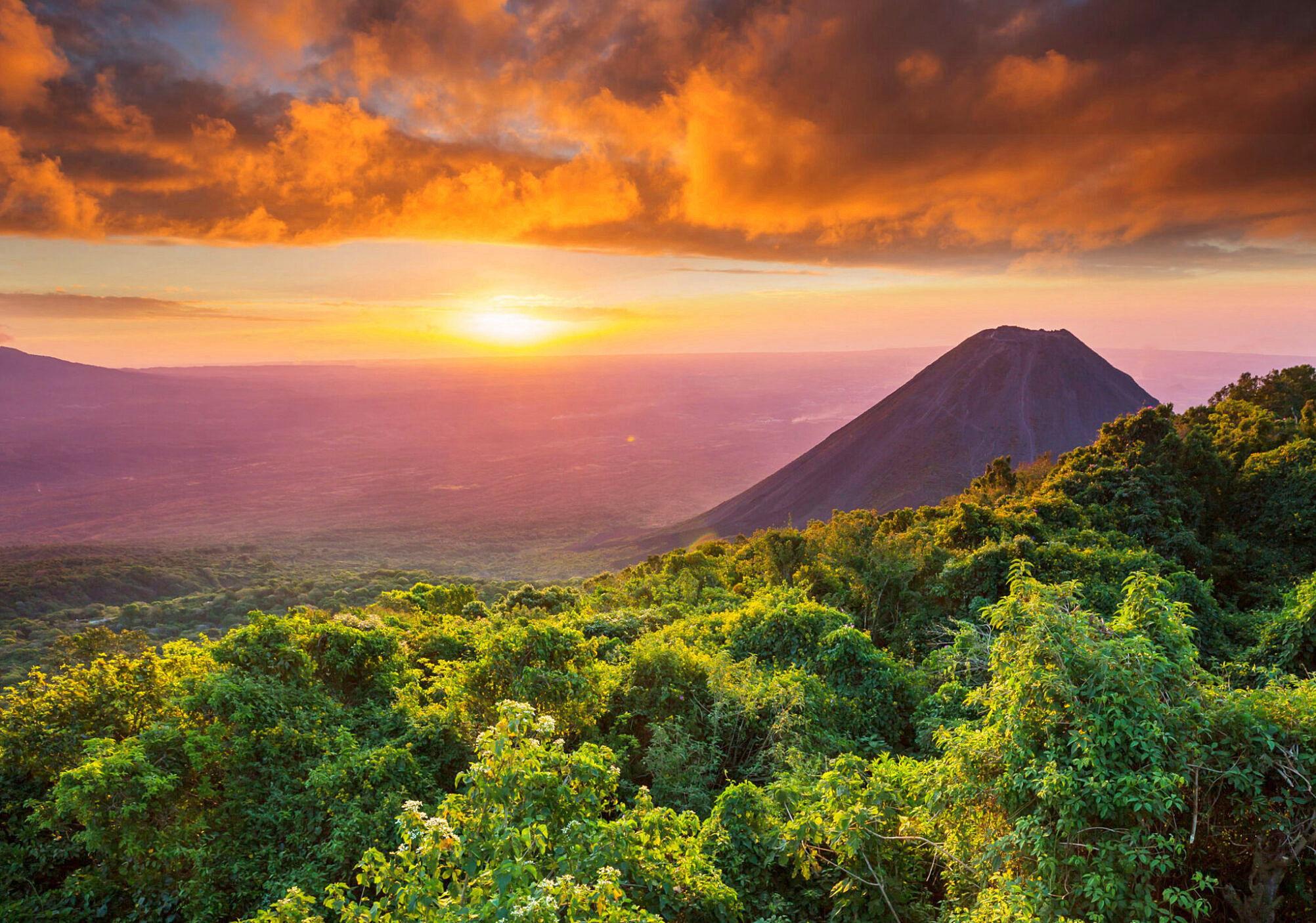
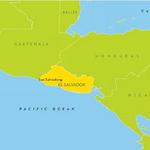
Geography
El Salvador is the smallest country in Central America. This mountainous country is bordered by the Pacific Ocean, Guatemala, and Honduras.The country's geography is characterized by: 1. Volcanoes. El Salvador is known as the "Land of Volcanoes" because it's located on the Central American volcanic axis and has over 20 volcanoes. Some of the volcanoes are still active, including Izalco, San Salvador, San Miguel, and Conchagua. El Salvador has frequent earthquakes and volcanic activity. 2. Mountain ranges. Two parallel mountain ranges run through the country from east to west, with the Sierra Madre in the north and a southern range near the coast. 3. Coastal plain. A narrow coastal plain that hugs the Pacific Ocean. The Pacific Ocean has many beaches and surf spots.

Climate
The climate of El Salvador is tropical. In general it is warm rather than hot, varying between the high 50s and upper 90sºF. Heavy rains fall in the winter season, from May to October. The dry summer season lasts from November to April.
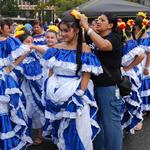
People, Culture, Language, & Religion
The intermarriage of Spanish settlers with the Indigenous population of the region has resulted in a largely ethnically homogeneous people. Almost nine-tenths of the population is Mestizo (people of mixed Indigenous and European ancestry); the remainder consists of Indigenous peoples (including the Izalco and, from the village of Panchimalco, the Pancho), people of European ancestry, and other small groups. Spanish is the official language of El Salvador, as Roman Catholic is the official religion of the country.
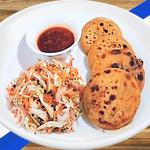
Cuisine
Salvadoran food is a diverse and flavorful blend of indigenous and Spanish influences. The cuisine is characterized by the use of corn, beans, meats, and cheeses, and includes many unique dishes. Some popular Salvadoran foods include: Pupusas: A thick, handmade flatbread made from cornmeal or rice flour, and stuffed with a variety of fillings. Pupusas are traditionally eaten by hand with tomato sauce and curtido (cabbage relish). Panes con pavo: A Christmas specialty of marinated and roasted turkey in a sauce of tomato, garlic, chilis, and spices, served in a sandwich bun with lettuce, radishes, and curtido. Sopa de gallina: A traditional chicken soup made with chicken, vegetables, herbs, spices, and guisquiles, a type of pumpkin. Sopa de mondongo: A nutritious and tasty soup made with vegetables, seeds, and diced tripe or cow's feet. Yuca frita: Deep-fried cassava root served with curtido and chicharrones.
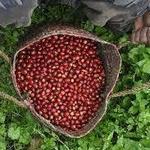
Agriculture
The most important agricultural products in El Salvador are coffee, cotton, corn (maize), and sugarcane. Several species of palm and coconut trees grow in the coastal zone, and there are many varieties of tropical fruit, such as coconut, tamarind, melon, watermelon, and mango. Nontraditional agricultural products (e.g., jalapeño peppers, marigolds, okra, and pineapple) have increased in importance since the early 2000s. Nevertheless, coffee alone still accounts for a substantial part of the value of total agricultural production. Cattle raising is also an important activity.
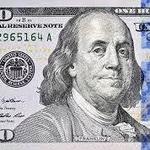
Currency & Time Change
Currency: El Salvador uses the U.S. dollar as its official unit of currency. Time Change: Please consider San Salvador is 2 hours ahead of CA time
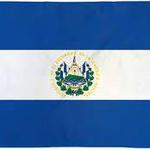
History
When the Maya civilization ended in 900 A.D., the Toltec Empire took hold in El Salvador. In the 11th century, the Pipil people became the dominant group in El Salvador until the Spanish conquerors landed. The Spanish took over in 1528 and forced the native people to become servants. El Salvador achieved independence from Spain in 1821 and full independence in 1841. Economic inequality led to the civil war in 1980. Many Salvadorans, fled to other parts of the world. The 12-year civil war, which cost about 75,000 lives, ended in 1992 when the government and leftist rebels signed a treaty that provided for military and political reforms. In the 2000's El Salvador was considered one of the world's most dangerous countries due to the springs of gang violence. After President Nayib Bukele became president in 2019, he transformed El Salvador by terminating gang violence, restoring peace & safety. El Salvador is now considered the safest country in the entire Western Hemisphere.